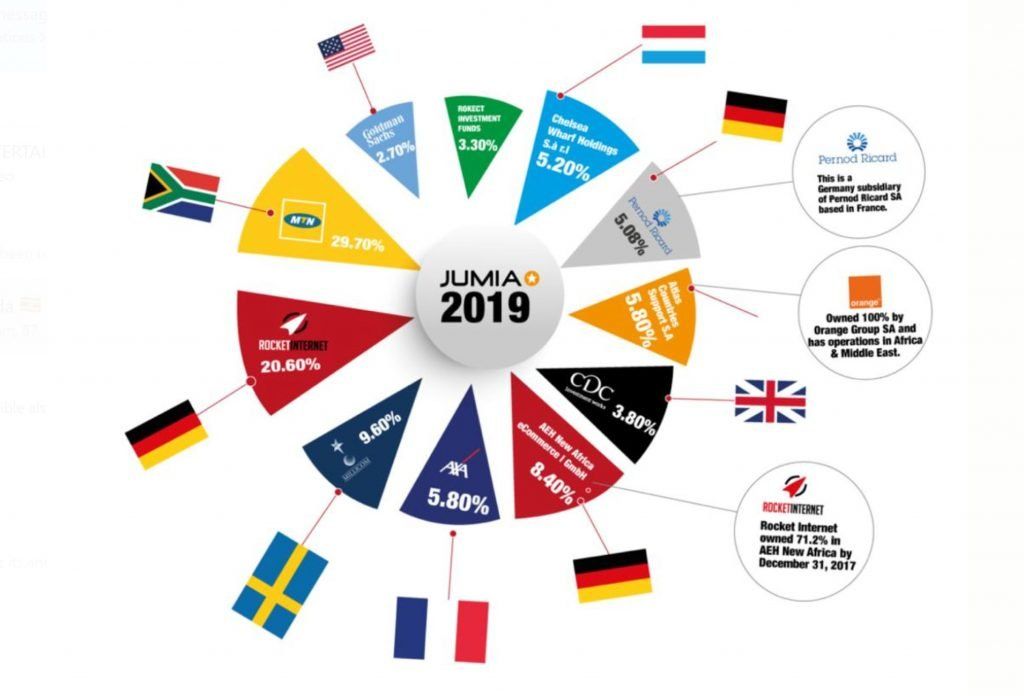A couple of days ago, Jumia launched its Initial public offering (IPO) on the New York Stock Exchange (NYSE) – strategically becoming the first internet startup built in Africa to be listed on the NYSE, where it will be trading under the name JMIA.
This was a great achievement, for both the company and the continent at large, given that the listing is an opportune moment for further expansion to new markets in Africa and a potential boost to more investment in infrastructure.
However, the peak of the milestone did not seem to go well for some parties who went on to rant about Jumia not being African. Apparently, the ‘war’ was sparked by Jumia CEO Sacha Poignonnec’s interview with CNBC in which he was asked to justify the company’s presence on the continent.
Many argue that Jumia should not market itself as African given that it is incorporated in Germany, has its headquarters in Dubai with its central tech team based in Portugal, with an IPO listing in New York.
But there’s a few points we are under looking, and it is absurd that we are.
Jumia was born in Africa
Jumia initially began in Nigeria under the brand name Kasuwa. The company was founded with a $10 million investment from Rocket Internet, in a partnership which involved Dr. Hendrik Harren and Ghanaian Raphael Afaedor as co-founders.
Kasuwa would later merge with another Rocket Internet e-commerce start-up led by Tunde Kehinde, Sabunta to birth Jumia Nigeria. At this point, Rocket Internet assigned Frenchmen Jérémy Hodara and CEO Sacha Poignonnec co-founder duties and marked the start of operations in June 2012.

Tunde and Rafael both departed from the company in 2015, to run their own ventures after successfully building the startup into a top Nigerian online retailer, with over $50 million in investments from foreign venture capital.
Jumia operates in Africa
Africa is largely unconnected and a huge portion of the population find it hard to access the internet. Thus, Jumia being an internet based market place could have found it hard (or still is finding it hard) to satisfy its presence in some parts of the continent.
None the less, the company operates in Nigeria, Kenya, South Africa, Egypt, Morocco, Ivory Coast, Uganda, Tanzania, Ghana, Tunisia, Algeria, Cameroon, Zambia, Malawi, Botswana, and Zimbabwe – cutting across its 7 market platforms.
“We are a completely African company, we operate exclusively in Africa. We have more than 5000 employees in Africa”
– Jumia CEO Sacha Poignonnec
Note that majority of Jumia’s management and staff in most of these countries are local, including country heads. Uganda’s Jumia CEO is Ron Kawamara – a Ugandan.
Who owns Jumia?

This has probably raised the most doubt, yet most of the answers given are baseless and not with information to give. The current shareholders of Jumia are:
- African Internet Group (owned by the founders Hodara and Poignonnec)
- Goldman Sachs Group Inc.
- Millicom International Cellular SA
- Orange SA
- MTN (largest shareholder)
- Rocket Internet SE
MTN is the largest shareholder and it primarily operates in Africa, with South Africa being their base. The Rocket Internet Germans come in second position, and other stakeholders follow in.
Jumia is not the only foreign-headquartered African startup
Critics were quick to fire at Poignonnec for referring to Africa as having “not enough development and developers” and were easily pointing at Andela – the continent’s top builder for software engineers and developers. But did they think of the fact that Andela has its corporate headquarters in New York?
No, they probably didn’t. In fact, there is a long list of startups across the continent that are represented this way – Pan-African in operation and marketing, but foreign in roots and incorporation.


